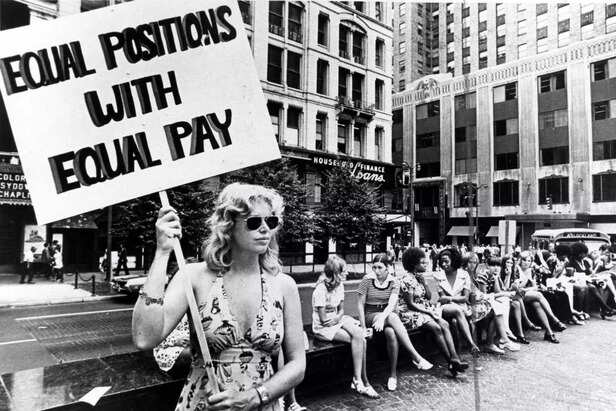The Gender Pay Gap Debate: What Millennials and Gen Z Are Doing Differently
Nikita Kanyal | Jan 23, 2025, 22:53 IST

Millennials and Generation Z are transforming the battle against the gender pay gap. By advocating for salary transparency and creating new career trajectories, they are addressing the problem directly. Through social media activism, daring career decisions, and pushing for policy change, these age groups are redefining the standards and compelling companies to take notice.
The gender pay gap has been a subject of intense discussion for a long time, with numerous activists advocating for progress and governments implementing policies to create equity. However, there’s a twist Millennials and Gen Z are not merely discussing it, they are altering the rules of the game.

The gender pay gap represents the typical difference in earnings between males and females. It’s not just about compensation, it’s also related to underlying issues, such as breaks in careers for caregiving, industries dominated by one gender, and implicit bias in hiring and promotion. In spite of years of advancement, the gap continues to exist. In India, the gender pay gap remains a significant issue, with women earning substantially less than men across various sectors. According to the World Inequality Report 2022, men in India earn 82% of the labor income, while women's earnings constitute only 18%. This disparity is evident across different employment types. The figures are even more alarming for women of color. Therefore, what distinguishes Millennials and Gen Z in this longstanding contest?
1. Demanding Equity Over Perks
Millennials and Gen Z seek equity instead of mere gimmicks. These generations are facing shallow actions that do not address the core problems of inequality. They are examining maternity and paternity leave policies, fair chances for advancement, and even the representation in executive meetings. Entities that do not fulfill these criteria risk losing their top talent and their status.
2. Weaponizing Social Media

Social media isn’t just for selfies and memes, it’s a megaphone for activism. Whether it’s calling out unequal pay practices on Twitter or organizing a LinkedIn post exposing workplace inequities, Millennials and Gen Z are turning up the heat.
Take the hashtag #EqualPay, which has been used by influencers, celebrities, and everyday workers to shed light on disparities in real time. The result? Public accountability. Companies can no longer sweep pay issues under the rug when their dirty laundry is aired online.
For Millennials and Gen Z, conventional career pathways are beginning to seem obsolete. They are choosing gig work, freelancing, and entrepreneurship to avoid systemic obstacles in typical corporate settings. In these positions, they are determining their own rates and rejecting the notion of underpricing their abilities.
4. Prioritizing Diversity and Inclusion

Millennials and Gen Z don’t just demand equal pay for women, they’re pushing for pay equity across race, gender identity, and sexual orientation. They’re calling out intersectionality as a key factor in the pay gap debate. This shift is forcing companies to adopt comprehensive diversity, equity, and inclusion (DEI) initiatives or risk being left behind.
An Indian example of a company leading the way in addressing the gender pay gap and promoting diversity, equity, and inclusion is Tata Consultancy Services (TCS). TCS has been recognized for its efforts to empower women through initiatives like iLead, which focuses on identifying and grooming women leaders, and Rebegin, a program designed to bring women back into the workforce after career breaks.
Millennials and Gen Z are shifting their focus towards policy matters. By advocating for laws on pay transparency and backing politicians who are committed to addressing the pay gap, they are ensuring their voices resonate within the halls of authority.
For instance, the "Paycheck Fairness Act" has gained considerable momentum, partly due to younger generations campaigning for its enactment. Through a blend of grassroots activism and political involvement, they are demonstrating that significant change is attainable.
The battle for pay equity is still ongoing, yet Millennials and Gen Z are adding a new level of urgency and creativity to the dialogue. They are approaching the issue from multiple perspectives personal, corporate, and political and they are determined to persevere.
Why the Gender Pay Gap Persists

Image Source : Pexels
The gender pay gap represents the typical difference in earnings between males and females. It’s not just about compensation, it’s also related to underlying issues, such as breaks in careers for caregiving, industries dominated by one gender, and implicit bias in hiring and promotion. In spite of years of advancement, the gap continues to exist. In India, the gender pay gap remains a significant issue, with women earning substantially less than men across various sectors. According to the World Inequality Report 2022, men in India earn 82% of the labor income, while women's earnings constitute only 18%. This disparity is evident across different employment types. The figures are even more alarming for women of color. Therefore, what distinguishes Millennials and Gen Z in this longstanding contest?
1. Demanding Equity Over Perks
2. Weaponizing Social Media

Image Source : Pexels
Social media isn’t just for selfies and memes, it’s a megaphone for activism. Whether it’s calling out unequal pay practices on Twitter or organizing a LinkedIn post exposing workplace inequities, Millennials and Gen Z are turning up the heat.
Take the hashtag #EqualPay, which has been used by influencers, celebrities, and everyday workers to shed light on disparities in real time. The result? Public accountability. Companies can no longer sweep pay issues under the rug when their dirty laundry is aired online.
3. Pioneering Alternative Career Paths
4. Prioritizing Diversity and Inclusion

Image Source : Pixabay
Millennials and Gen Z don’t just demand equal pay for women, they’re pushing for pay equity across race, gender identity, and sexual orientation. They’re calling out intersectionality as a key factor in the pay gap debate. This shift is forcing companies to adopt comprehensive diversity, equity, and inclusion (DEI) initiatives or risk being left behind.
An Indian example of a company leading the way in addressing the gender pay gap and promoting diversity, equity, and inclusion is Tata Consultancy Services (TCS). TCS has been recognized for its efforts to empower women through initiatives like iLead, which focuses on identifying and grooming women leaders, and Rebegin, a program designed to bring women back into the workforce after career breaks.
5. Demanding Legislative Action
For instance, the "Paycheck Fairness Act" has gained considerable momentum, partly due to younger generations campaigning for its enactment. Through a blend of grassroots activism and political involvement, they are demonstrating that significant change is attainable.
The battle for pay equity is still ongoing, yet Millennials and Gen Z are adding a new level of urgency and creativity to the dialogue. They are approaching the issue from multiple perspectives personal, corporate, and political and they are determined to persevere.
